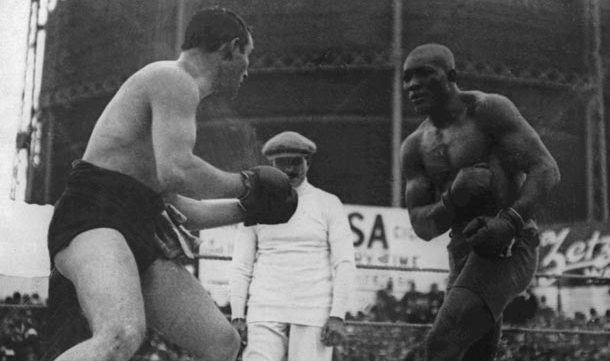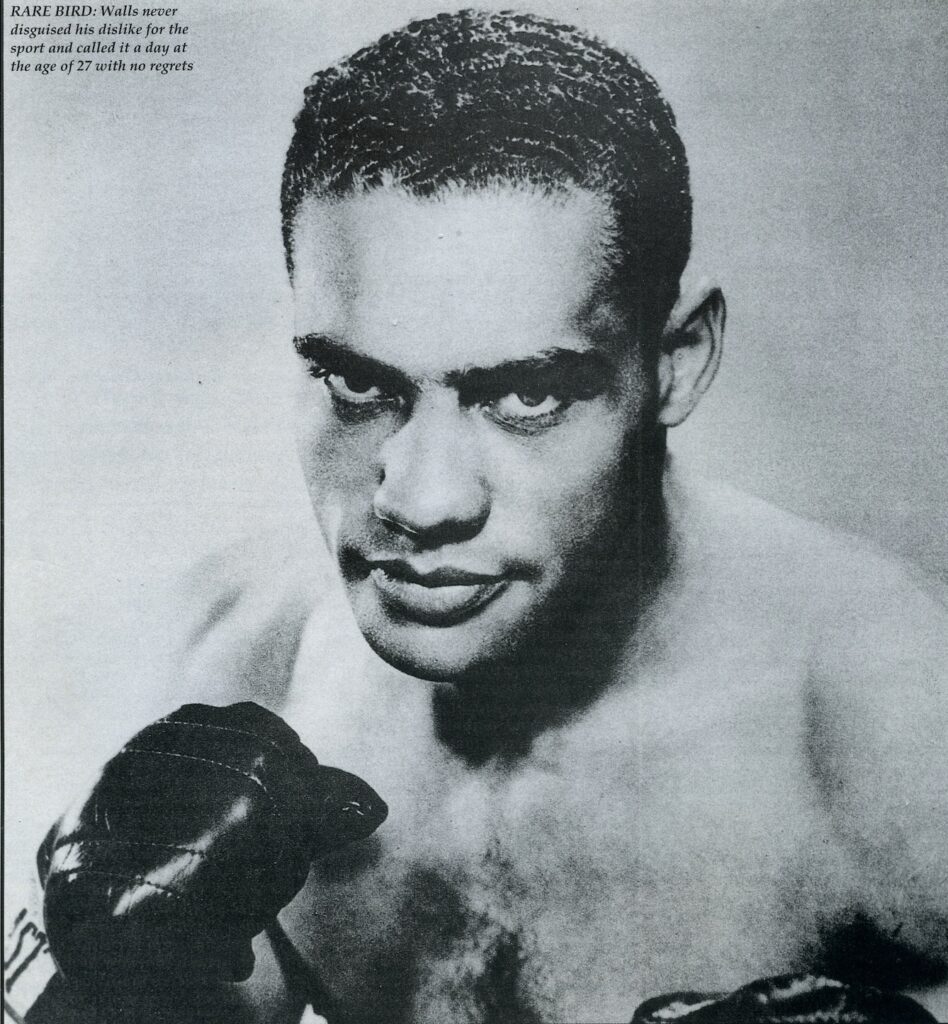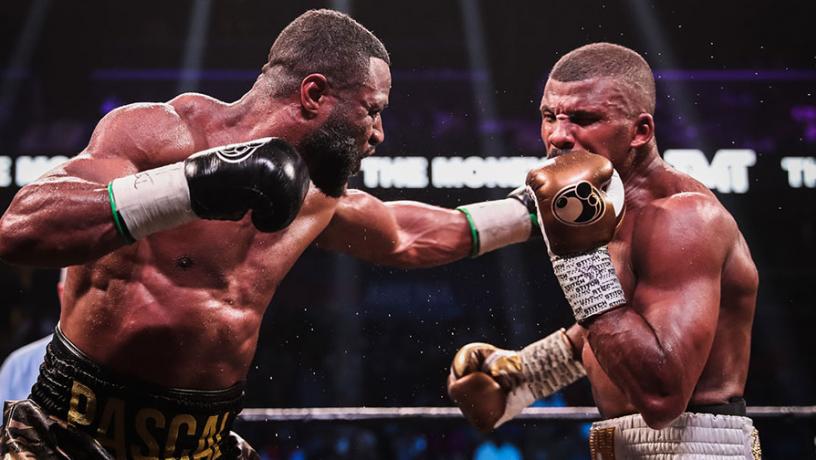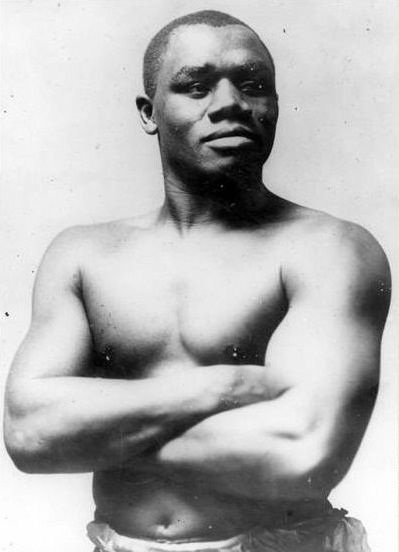IBHOF inductee Graham Houston laments the fact that DAZN Canada dropped the August 1 Matchroom Boxing event from its schedule but hopes it was just a temporary glitch as he takes a look at the nation’s rich boxing history.
O Canada is the title of the national anthem. For boxing fans, it was “Oh, Canada!” when DAZN Canada dropped the August 1 Matchroom Boxing event from its schedule, and this after a 2018 announcement that DAZN Canada had signed an eight-year output deal with Matchroom Boxing.
So, Canadian residents who may have subscribed to DAZN Canada purely for the boxing (that would include me as I live in Vancouver) had to scramble to find other ways to watch the rousing battle between Ted Cheeseman and Sam Eggington.
So, why did DAZN Canada drop the August 1 Matchroom Boxing show? The reply from customer service offered the explanation that the decision was made due to “certain commercial sensitivities with the rights”. Say what?!
Weren’t subscribers promised all Matchroom Boxing shows?
Well, customer service replied, DAZN Canada offers many sports in its package, including “darts, bowling and fishing”.
Darts, bowling and fishing? Nothing against these sports and pastimes — I know that darts is popular, and former Boxing Monthly editor Glyn Leach was an enthusiastic — and apparently more than useful — carp fisherman.) So, no disrespect there. But for me, and I suspect many others, boxing programming was the prime reason for subscribing.
It just didn’t seem right that a Canadian sports streaming service would drop an excellent boxing show, especially after months of zero live sports due to the virus from hell.
There is good news for Canadian fight fans, though. As of Thursday, Matchroom Boxing was back on the DAZN Canada programme schedule.
Look, it’s not up for debate: Fight fans and indeed Canadian boxing itself deserves and even needs to see the same Matchroom shows that are offered to DAZN subscribers in the US and elsewhere.
True, boxing gets scant media coverage in Canada these days. But Canada isn’t alone in this regard. And despite lack of media coverage, boxing has a solid following in Canada, trust me on this. Also, Canada has a rich boxing tradition. Let’s take a look at it.
Great old-time fighters George Dixon and Sam Langford were born in Nova Scotia. Great welterweight champion Jimmy McLarnin was born in Belfast but raised in Canada and started his boxing career in British Columbia although he soon moved to California with manager Pop Foster in search of wider opportunities.
Canadian-born world champions over the years have included Matthew Hilton, Donnie Lalonde, Arturo Gatti (who moved to New Jersey) and Steve Molitor. Although Jean Pascal and Adonis Stevenson were born in Haiti they were raised in Quebec. Otis Grant was born in Jamaica but raised in Quebec.
Canada even had a native-born world heavyweight champion in Tommy Burns, born in Windsor, Ontario, although his first pro bouts were just across the border in Michigan. (Burns scored a couple of KOs in title defences in London and another in Dublin in a brief campaign in Britain and Ireland.)

against the great Jack Johnson.
Jamaican-born former heavyweight champion Trevor Berbick could be claimed as a Canadian world champion as he resided in Nova Scotia and his early professional bouts (the first 18 actually) were fought in Canada. Goodness, Canada could even claim Lennox Lewis as one of its own (raised from an early age in the Toronto area, won his Olympic gold medal representing Canada).
There was the Fighting Fisherman, Yvon Durelle, who almost knocked out the great Archie Moore in the first round of a truly sensational fight for the light-heavyweight title in Montreal in December 1958. (Yet Durelle was winless in three bouts in Britain in the 1950s although two of the rough-and-tough fighter’s UK losses were by disqualification.)
Clyde Gray, the Toronto welterweight, failed in three bids for the world welterweight title but he gave the great Jose Napoles plenty to think about in a 15-round fight at Maple Leaf Gardens in 1973. Gray, a classy boxer and sharp puncher, couldn’t quite match Napoles’ superior all-around skills and greater firepower, but he seemed to hurt the champion with a right hand in the ninth round — “Napoles was stunned!” ABC-TV commentator Howard Cosell exclaimed. Napoles won a unanimous decision but, as Cosell told the US viewing audience, Gray put up “a whale of a fight”.
Then we had George Chuvalo, the heavyweight iron man from Toronto, never knocked down in his long career. We think of Chuvalo’s two losses against Muhammad Ali and defeats against Joe Frazier, George Foreman and Floyd Patterson, but Chuvalo had some pretty big wins, especially the 11th-round stoppage of contender Doug Jones and a somewhat controversial seventh-round KO win over Jerry Quarry, who claimed he had risen from the canvas in time to beat the count. Chuvalo’s three-fight series with Montreal’s Bob Cleroux for the Canadian title were, I believe, big events in Canada in the early 1960s.
Talking of heavyweights, Earl Walls, of Toronto, was an exciting puncher who scored 27 KOs in his 34 wins. He was once ranked among the world’s top heavyweights. Walls knocked out the 1950s contender Rex Layne in 63 seconds in Edmonton, Alberta in July 1953 and knocked him out again, this time in the sixth round, in front of Layne’s hometown crowd in Salt Lake City, Utah, two months later. Walls had a series of six fights in Britain in 1949-50, knocking out four opponents.
Staying with Walls, his bout with the Jamaican Lloyd Barnett at the Royal Albert Hall in December 1949 was considered one of the greatest fights seen in Britain that year, with both men knocked down and both almost stopped. Barnett got the decision. Walls retired on a winning note at the age of 27. Some fighters sadly stay in the game too long; Walls wasn’t one of them. In fact, it could be argued he retired too early.

who hit the world rankings in the early 1950s.
Walls’ stablemate, Vern Escoe, had a series of five fights in Britain. He stopped two boxers who held the British heavyweight title, Jack Gardner and Jack London, and he outpointed Gardner in a rematch (while losing an unpopular decision to Johnny Williams, another British heavyweight champion).
Larry Gains, a heavyweight contender of the 1930s, was born in Toronto but campaigned extensively in Europe and eventually settled in Britain, where he was a popular figure; he outpointed future heavyweight champion Primo Carnera at London’s White City Stadium in 1932.
Edmonton, Alberta’s tough Wilf Greaves won a 15-round decision over future middleweight and light-heavyweight champion Dick Tiger in 1960. The win made Greaves champion of the British Empire (as it was still called for fight-billing purposes) but Tiger won the rematch in nine rounds.
Ontario light-heavyweight slugger Gordon Wallace won three fights in Britain in the 1950s, including a fourth-round knockout over a faded but still well-regarded Randolph Turpin. This result upset the plans of promoter Jack Solomons, who had planned on matching Turpin with Archie Moore; Yolande Pompey got the world title gig instead.

careers – like current WBA Regular 175lbs champion Jean Pascal (left), in
action here against Badou Jack. Photo: Showtime.
Slick-boxing Montreal welterweight Marshall Butler ended John H. Stracey’s unbeaten record with an eight-round points win at the Royal Albert Hall in 1972. Other fighters from the land of the Maple Leaf who won in the UK include the aforementioned Otis Grant and Steve Molitor, Pat Supple, Donovan Boucher and Tony Pep, while heavyweight Bill Drover drew with Joe Bugner. Another heavyweight, James J. Parker, was considered unlucky to have to settle for a draw against the 7ft 2in South African, Ewart Potgieter.
So much history there, and I’ve not covered it all by any means.
But, latterly, boxing has faded from the public view in Canada. There is interest there, though, I’m sure of that. I wrote a weekly boxing column for seven years for the Vancouver Sun newspaper but the editors who commissioned the column liked boxing (and maybe even liked me a little bit). When new management came on board, the column was dropped. But seven years wasn’t a bad run; I must have been doing something right. I know that the sports desk had quite a few calls from boxing fans about the column being dropped. One fan was so upset he wanted to start a petition to get the column restored. I told him thanks, but don’t bother. I was well aware that that particular train had left the station.
Now, boxing is hardly covered by the Canadian papers. Canada has a sports broadcasting service called TSN, which has several platforms, including one in the French language, but boxing isn’t big at TSN any more (it was initially). “It’s hit and miss,” Vancouver boxing historian Wayne Wilson told me when asked what he thought of TSN’s coverage. So a hard-core fan in Canada often has to search for other ways to watch the fights.
This reminds me of a remark boxing writer Claude Abrams once made to me: “It’s always a battle.” Claude was referencing the difficulties a reporter might encounter when applying for a ringside credential to cover a big fight. I think of Claude’s words when I think of boxing fans in Canada: It’s always a battle.
But, with Matchroom Boxing events back on DAZN Canada’s schedule, Canadian fight fans will be hoping that Cheeseman vs Eggington getting dropped was just a temporary hitch, and that this will turn out to be one of those situations where all’s well that ends well.

as the finest fighter never to box for a world title,
having been frozen out of the picture on racial lines.